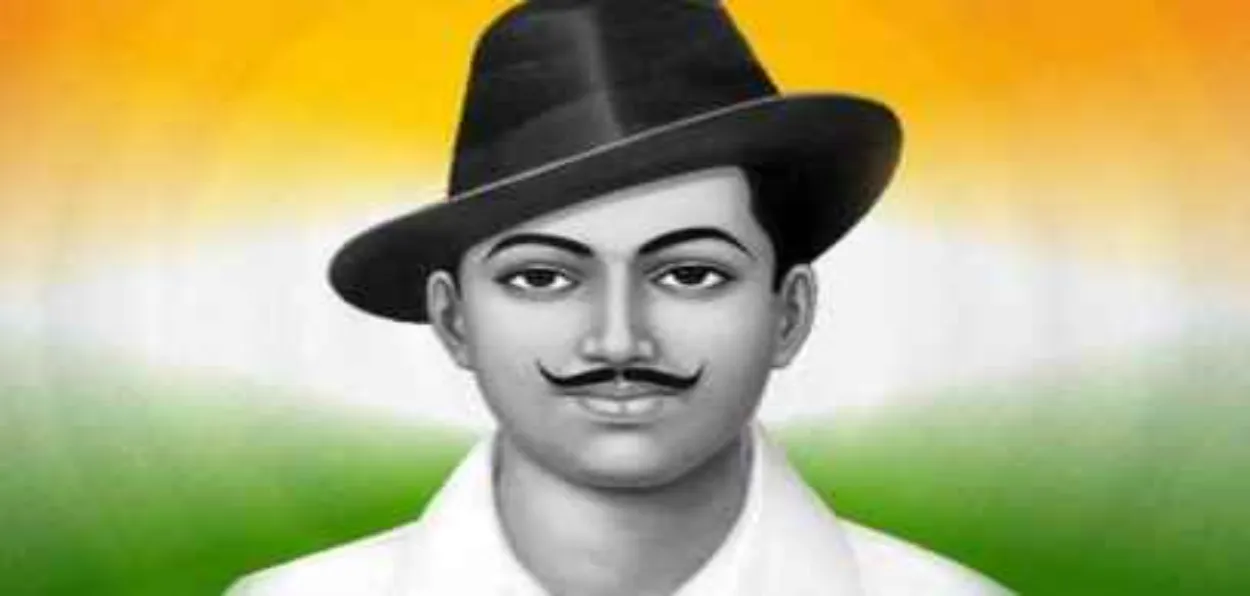
Saquib Salim
Bhagat Singh was a revolutionary is a well-known fact, but do you know what was his profession? It is not commonly known that Bhagat Singh was a journalist. He wrote articles in Punjabi, Urdu, Hindi, and English. Singh started his journalistic career as a reporter with the Hindi daily Pratap, edited by the known Hindi journalist Ganesh Shankar Vidyarthi. He also edited a Punjabi magazine Kirti which was the mouthpiece of revolutionaries. His article published in the magazine on Ram Prasad Bismil, Ashfaq Ullah Khan and other revolutionaries was so popular that it drew government action against Kirti.
Was Bhagat Singh the first journalist to sacrifice his life for the motherland? No. Was he the last? No. Maulvi Mohammad Baqir holds the honour of becoming the first journalist to attain martyrdom for India during the freedom struggle. Baqir started the first Urdu newspaper of Delhi, Delhi Urdu Akhbar, in 1837. When the Indian revolutionaries started the first war of national independence in 1857, he dedicated the newspaper to the cause of the national cause.
Baqir’s newspaper carried messages of revolutionaries, directions for the forces, and articles to boost the morale of the Indians against the British army. The English officials understood his role in the freedom struggle and the danger he posed to them. While they enacted the drama of court justice and hanged other revolutionaries after hearings in their kangaroo courts, Major Hudson shot Baqir dead without trial. On 16 September 1857, he sacrificed his life for the country and started a tradition for Indian journalists.
Bal Gangadhar Tilak started the revolutionary trend in the freedom struggle through the papers he edited. Maratha and Kesari helped in spreading militant revolutionary ideas among youth. His articles in support of revolutionaries like Khudiram Bose attracted imprisonment at a notorious jail at Mandalay in Myanmar.
Aurobindo Ghosh and his brother Barindra Ghosh both led the Indian revolutionaries as journalists. They edited newspapers and magazines which preached militant nationalism among youth. Barindra Ghosh was sent to the Andaman Islands for this ‘crime’. Both the brothers were accused of starting ‘bomb culture’ in the Indian freedom struggle and were thought to be the most dangerous for the British Raj.
Maulana Abul Kalam Azad also started his career as a journalist. He started publishing a journal at the age of 16 which preached nationalism and Hindu-Muslim unity among its readers. Al-Hilal, a newspaper started by Azad in 1912, was one of the most popular newspapers of its time. Its highly anti-colonial language made the English officials uneasy. The newspaper was fined many times until it was completely shut down. The first penal internment of Azad in 1916 was not for any strike or violence but for writing articles in his newspaper.
I have already talked about Ganesh Shankar Vidyarthi for training Bhagat Singh in journalism. Vidyarthi published a Hindi newspaper, Pratap, which raised nationalist issues. The newspaper openly advocated revolutionaries, raised the oppression of Indians by the English, and preached Hindu-Muslim unity. It was his newspaper that brought Champaran to the notice of Mahatma Gandhi. Gandhi went to Champaran, started a Satyagraha, and became the mass leader of the Indian freedom struggle. Vidyarthi was killed by a mob when he was trying to stop a Hindu Muslim riot.
Hasrat Mohani who coined the slogan Inquilab Zindabad was jailed for writing articles and his press was confiscated. Maulana Muhammad Ali Jauhar also started his political career by publishing a newspaper. Madan Mohan Malviya also edited Hindustan and started his political career as a journalist. We should not forget that Mahatma Gandhi himself edited magazines and journals.
ALSO READ: I am a self-made person: Atika Farooqui
The Indians did not get any news of Azad Hind Fauj and Netaji Subhas Chandra Bose owing to heavy censorship during the World War. People, including Congress leaders, believed that Netaji was a Japanese agent and that the army fighting in Burma was a Japanese Indian Fighting Force intending to colonize India for Japan. Imdad Sabri was a Delhi-based journalist who worked closely with Netaji since the 1930s. He defied censorship to write articles and books in support of Azad Hind Fauj. It was through the impact of his writings that the nation came to know the truth. People came out in support of Netaji and made the historic Royal Naval Mutiny and other protests in support of Azad Hind Fauj possible.
